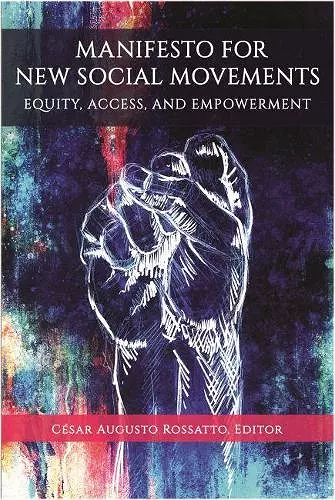Manifesto for New Social Movements
Equity, Access, & Empowerment
Format:Hardback
Publisher:Information Age Publishing
Published:18th Oct '19
Currently unavailable, and unfortunately no date known when it will be back

The world is currently witnessing the emergence of a new context for education, labor, and transformative social movements. Global flows of people, capital, and energy increasingly define the world we live in. The multinational corporation, with its pursuit of ever-cheaper sources of labor and materials and its disregard for human life, is the dominant form of economic organization, where capital can cross borders, but people can’t.
Affirmative action, democracy, and human rights are moving in from the margins to challenge capitalist priorities of “efficiency”, i.e. exploitation. In some places, the representatives of popular movements are actually taking the reins of state power. Across the globe new progressive movements are emerging to bridge national identities and boundaries, in solidarity with transnational class, gender, and ethnic struggles.
At this juncture, educators have a key role to play. The ideology of market competition has become more entrenched in schools, even as opportunities for skilled employment diminish. We must rethink the relationship between schooling and labor, developing transnational pedagogies that draw upon the myriad social struggles shaping students’ lives and communities. Critical educators need to connect with other social movements to put a radically democratic agenda, based on the principles of equity, access, and emancipation, at the center of educational praxis. Many countries in Latin America like in other continents are developing new alternatives for the reconstruction of social projects; these emerging sources of hope are the central focus of this book. Major historical change always starts with people’s social movement.
Democracy can be one of the best political and social systems in the world but for it to work entails the sustainable participation of citizens. Above all, it requires that people be informed and critically educated since the quality of democracy depends on quality of education. There are 2 kinds of power: money and people. If people exercise their agency, they can be more powerful than money. There are some organizing principles of social movements, as: “don’t do for others what they should do for themselves.” Saul Alinsky wrote: Rules for Radicals: A pragmatic primer for realistic radicals; Mary Rogers: Cold Anger: A story of faith and power politics; Michael Gecan: Going Public: An organizer’s guide to citizen action; and Ernesto Cortez’s, Industrial Area Foundation,...
ISBN: 9781641137928
Dimensions: unknown
Weight: unknown
232 pages